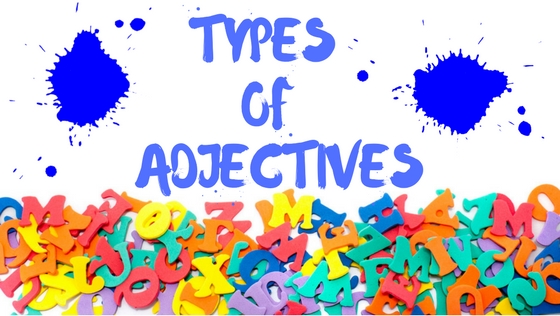
English is considered to be a complex language than it is actually. This is due to the various detailing in the language. Though there are many other languages that are tougher than English and widely spoken, English is spoken on a universal basis. While speaking or writing in the language of English, one has to describe various things and objects. For this function, one concept that will be in frequent usage is adjectives. Adjectives are words that describe another word. To be more specific, adjectives are words that change pronouns, nouns and other adjectives. Adjectives describe an object that gives it an explanation of its possession or state. To know in-depth information about adjectives try out the Best Spoken English Classes in Coimbatore.
While categorizing adjectives, there are two different concepts that apply in it. They are degrees of adjectives and types of adjectives. In this article, we will look into both of these concepts.
First, we will look into the degrees of adjectives. The various degrees of adjectives indicate the level of the description given to an object. The degrees are explained below.
POSITIVE: This degree of adjective describes a single person or object in a situation. This is a normal adjective that describes the subject in a sentence. An example of a sentence with a positive adjective is ‘I am fast.’.
COMPARATIVE: This degree of adjective compares a person or object to another person or object. It compares a quantitative or qualitative aspect of the subject in the sentence. The comparative adjective is often followed by the word ‘than’. An example of a sentence with a comparative adjective is ‘I am faster than him.’
SUPERLATIVE: Superlative adjectives are used in two situations. One when there is a necessity to compare three or more subjects in single context. The other is when there is a necessity to imply that one subject or its value is the most. An example of a sentence with a superlative adjective is ‘ I am the fastest among the five.’
IELTS Classes in Coimbatore talks about such degrees in adjectives. Now let us learn about the different types of adjectives.
DESCRIPTIVE: the Descriptive adjective is used to describe a noun or pronoun. It indicates the descriptive value of the subject in the context. The degree based adjectives mostly fall into a descriptive category. A descriptive adjective with one or two syllables can be changed into a comparative or superlative by adding “er” and “est” to the word respectively. Descriptive adjectives with three or more syllables don’t use the technique of adding er and est. You cannot convert the beautiful into “beautifuler “or “beautifullest”. In such cases, you should use the words more and much to convert the descriptive adjectives into comparative and superlative. But there are also some exceptions in cases like good which has only one syllable you cannot make it “gooder” or “goodest”. In this case, good becomes better and best. Some examples of descriptive adjectives are louder, short etc.
QUANTITATIVE: Quantitative adjective indicates the quantity of the subject in the sentence. Some examples of quantitative adjectives are many, lot etc.
DEMONSTRATIVE: This adjective indicates which noun or pronoun you are referring to in the context. Some examples are This, These, That and Those.
POSSESSIVE: Possessive adjective represents possession of something. Some examples are My, His, Her, Their, Your and Our. The adjectives except for ‘his’ can only be used before the noun. You should use the words Mine, Hers, Theirs, Yours and Ours instead of the previously mentioned adjective when you want to skip mentioning the nouns in the sentence.
INTERROGATIVE: interrogative adjectives ask questions regarding something. But only a few question-based words fall into the category of interrogative adjectives. Some of them are Which, What and Whose. Words like Who and How don’t come under this category because you cannot tell ‘who coat?’.
DISTRIBUTIVE: These adjectives are used to describe a specific member out of a group. Such adjectives are utilized to single out one or more things. Some of these adjectives are Each, Every, Either, Neither and Any.
To know more about such aspects in English join English Coaching Classes in Coimbatore.




meda@b.unisexjewelry.org